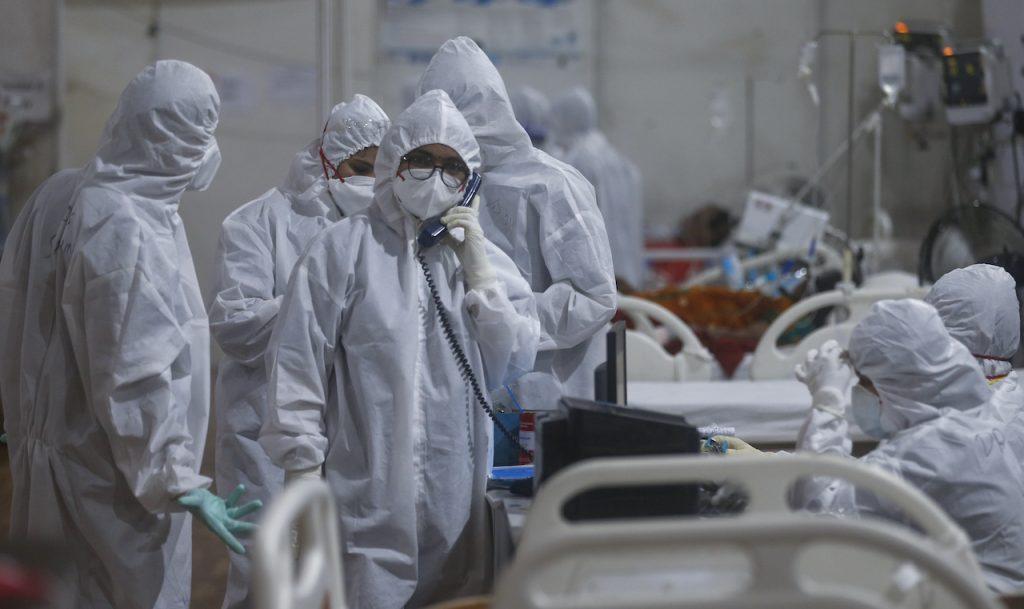India’s beaten and bruised Covid doctors demand action after repeated assaults
The government introduced a jail term of up to seven years as punishment for attacks on health workers treating Covid patients but that hasn't reduced assaults.
Since the start of the pandemic in India, an increasing number of doctors have been attacked by families of Covid patients.
The recurring complaint is that their loved ones weren’t treated properly or weren’t allocated a bed on time, says the BBC.
Doctors have protested and gone on strike demanding stricter laws to prevent physical attacks, as well as more staffing and better infrastructure to relieve the pressure on them.
Most violent incidents don’t lead to police complaints or investigations. When they do, the accused are often released on bail quickly and the case is settled outside court.
Earlier this year, the family of a Covid patient who died in India’s devastating second wave damaged property and abused staff at Apollo Hospital in the capital, Delhi.
Despite being a prominent private hospital, it did not press charges. In fact, hospital administrations rarely get involved in such cases, leaving staff more vulnerable.
Doctors say one problem is that there is no specific law protecting them.
“We have found that existing laws are not effective and that is why they are not a deterrent. A strong law is urgently needed so people understand that there will be consequences for beating doctors,” said Dr Jayesh Lele, secretary general of the Indian Medical Association (IMA).
With a membership of more than 330,000 doctors, the IMA has been campaigning hard for a stringent law to deter attacks against healthcare professionals.
“Such violence is not premeditated, but more an outcome of an emotional trigger caused by death. Hence, laws don’t work as a deterrent,” said Shreya Shrivastava, who has been tracking violence against doctors.
She said the government introduced a jail term of up to seven years as punishment for attacks on health workers treating Covid patients but that hasn’t helped.
Dr Vikas Reddy, a doctor at Gandhi Hospital in the southern city of Hyderabad, was attacked with chairs in June last year by relatives of a man who had died from Covid. He filed a police complaint, but no-one has been arrested yet.
“We have to spend time with patients and their families to explain the things we can and can’t do. And if they disagree, they need to take the patient to another hospital. But we don’t have that kind of time,” he said.
India has one of the worst doctor-patient ratios globally. In 2018, there were 90 physicians per 100,000 people, according to World Bank estimates. That’s far lower than China (200), the US (260) or Russia (400).
And the pandemic has stretched an already thin workforce to breaking point.
Shrivastava’s research revealed that attacks on healthcare workers usually happened when patients were in emergency wards or ICUs, shifted from one hospital to another or when they died. And all of this has become more frequent during the pandemic.
“Being inside a Covid ward is like being at war,” said Dr Lele.
Then there is the issue of trust. A largely unregulated and expensive private sector provides two-thirds of all healthcare services in India.
Shrivastava said people have been dying of Covid despite costly care, weakening trust in the system. And media reports of medical negligence, which tend to outnumber stories of doctors’ struggles, make people more suspicious.
Subscribe to our newsletter
To be updated with all the latest news and analyses daily.
